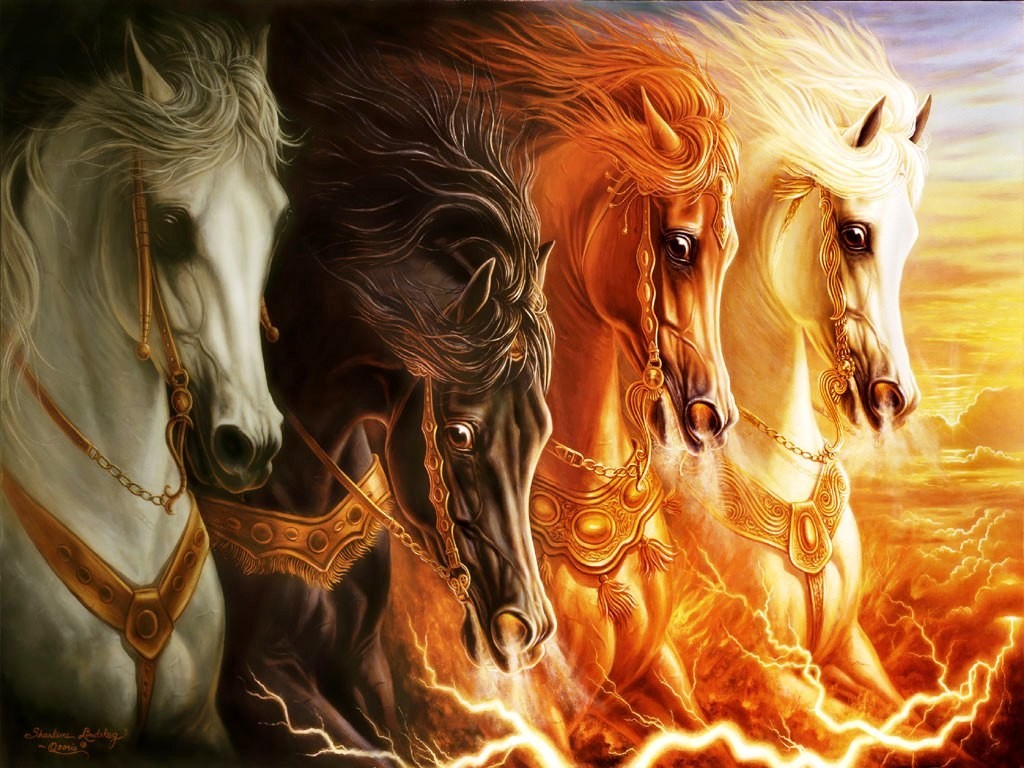I touched the wall with my fingers. I felt an oily texture, thick, and I pulled back my hand. It's useless, I said to myself; I'll never get there on my own. I walked a few meters unsteadily; I slipped, fell, bumped into something solid, maybe a lamppost, and got myself totally filthy in a puddle. With difficulty, I sat up.
"Taxi!"
There was a minute of ominous silence, a minute with the smell of glycerine and the thickness of marmalade.
"Taxi, yessir! Where do you want me to take you?"
I approached the cabbie, trying to see his face. It was impossible. From the sound of his voice I figured he had to be a kid. Bad, I thought. This one won't know the way. But he was wearing the uniform of the Union-yellow, the only color that stood out in the smog-although that, far from calming me down, increased my confusion.
"How long have you been a cabbie?"
"So what's it to you?" the hack said rudely. "Just tell me where you're going!"
I told him the address of my house. I had to fight with myself to keep from questioning him about the work he did. It bothers the hacks to talk about their situation, and all the resentment accumulated during centuries of marginal existence bursts forth at the first direct reference.
I put my arms around the waist of that shitty blind sonofabitch snot-nosed kid, and let him lead me along.
He took off his dirty clothes and tossed them on a chair. Once again, the rationing of electricity favored the impression of living submerged in tar. He hugged his wife without saying a word and felt the same as if he had hugged a store mannikin covered with honey. He couldn't avoid pessimistic thoughts. They lived in an era of invisible scratches, of unadmitted blows. Now everything was secret, except the stink. She smelled like chicken innards; he smelled like whale guts, and there's a lot more in whales than in chickens.
They ate without talking. Pure agar, cyanide cheese, bread made of thirty percent ground cork. Afterwards they drank a digestive tea. Oregano tea.
At eight o'clock sharp, the butane winds began to blow. "How prompt!" he said, suddenly cheerful. "As far as I'm concerned, the weathermen study witchcraft. How times change! Before they didn't get a single..."
"Unghhhh!" she choked.
"Damn! The masks!"
At nine they were finally able to take off the masks. They tried to kiss and only managed to bump into each other in the darkness. Each sentence was the contaminated imitation of forgotten words of love. They said many sweet things to each other and didn't believe any of them. When he managed to get it in her, after several failed attempts, he was thinking about other things. He would have liked to be drinking Mistela wine on the terrace of a café, by the sea shore, with the wind blowing across his bare chest and a six or seven day growth of beard.
The sign on the wall said:
THE TOXICANS HAVE BEEN DECLARED ENEMIES OF MANKIND.
Help us. Report them. They aim to conquer the planet. They want to wipe out the human race in order to take its place. How do you recognize them?
a) They don't use masks or filters.
b) They can breathe carbon dioxide, cyanogen, butane and acetone fumes.
c) They can eat tragacanth, propylene, pyroxylins, podzol and lanthanum.
d) They have the sect's insignia sewn on their chest: green smoke issuing from a red chimney flanked by dead fish on a black field.
e) They always go about in groups of three, symbolizing the Holy Triangle: contamination of the water, poisoning of the air, sterilization of the land.
Hiding Toxicans is punishable by forced ingestion of tap water. Help us. Report them.
FIGHT FOR THE PRESERVATION OF THE HUMAN RACE. THE HUMAN RACE IS THE BEST RACE.
At ten o'clock the lights came back on. Even though there was only a single, low-power lamp, they could see. Their naked and pale bodies stood out in contrast with the flowers of the wallpaper.
"Oh my God!" exclaimed the woman. "I don't know you! Who are you? Who was 1 making love with?"
Mortell jumped. The woman's words awoke cynical thoughts in him. How could you call this filth love? He still had memories, treasures, the remembrance of love.
At any rate the light had gone out again. Mortell supposed that the woman was trying to cover herself up, as if he were able to see in the dark.
"What will 1 tell my husband?" The question sounded stupid. And it would have stayed floating indefinitely in the thick air of the room if Mortell had not sympathized with the woman.
"You won't tell him anything," he said. "It's virtually impossible that he'll make it back. Probably the same thing happened to him as to me. A cabbie who doesn't know the city will take him somewhere; to my house or to somebody else's. He'll go to bed with my wife. The poor woman will scream in terror when she discovers him, and he, perhaps, will murder her in the dark, unintentionally, and it's even possible he will trample her underfoot. 1 stopped worrying about such things a long time ago."
"He's very jealous," the woman said. "He won't forgive me, ever."
"Lady, lady," said Mortell impatiently, "he's not coming back."
"I'm a decent woman!"
"I know that. I put strychnine in the tea." Mortell's voice sounded tired, exhausted.
"What did you say?"
"I put strychnine, poison. We're going to die in a few minutes.
"I don't believe you." The woman was terrified at the prospect of dying in the arms of someone she didn't know, that her husband would find her with a stranger when he carne home.
"It's a fast poison. I would have used curare, but I couldn't get any. Very soon everything will be oven for us."
They stayed silent, calm.
"Do you feel anything bad?" said Mortell.
"No."
"Let's wait a little longer." Mortell was annoyed, and the woman began to get bored. He tried to make his mind a blank sheet, but the whiteness was tinged with yellow, a color between bile-green and sky-blue. He tried to fight that sensation, "What's your name?" he asked. "Hortense. And yours?"
"Mortell."
"What Mortell?"
"Just Mortell." He didn't dare admit a name like Narcissus. Anyway he was sure the woman was lying. Probably her name was Vanessa, Solange or another of the names that were in fashion thirty years before. Although actually that was quite irrelevant.
"So?" The woman had lost her patience; she appeared unwilling to wait a second longer for death.
"It's not working," said Mortell. "Our organism is continually changing. Now it has learned to assimilate strychnine, and who knows how many poisons are now harmless. Dying is very difficult. So is staying alive. I feel like I'm in front of a yellow traffic light, don't go on and don't stop. You know about traffic lights?"
"No."
"It was a timing device that regulated the flow of cars."
"Cars... The cars... How old are you? You must be very old. You talk like the extremists. You're not one of the extremists, are you?" Hortense was scared. She would have run out the door, but outside was more dangerous.
"Perhaps I might have been an extremist at some time. What good would that do now? Are there any people under the age of twenty? The only fertile species inhabiting the planet is the Toxicans. Man thinks he knows everything, and he knows nothing. We quit learning a long time ago." He realized that he was babbling, overly excited. He closed his mouth.
"It wasn't so bad, actually," said Hortense. "Are you sure my husband won't come back?"
Mortell nodded yes, twice. She didn't see him. "I have hopes," said the woman.
"For what?" said Mortell "I'm going," he added. "I can't be too far from home."
"Don't go! My husband went out to look for dynamite to blow everything up."
"No kidding! Do you think we'll be so lucky? After what happened with the strychnine?"
"If the dynamite doesn't explode, we can trying chewing it," the woman said.
"This isn't it," I said with a low voice. Nevertheless, the taxi heard me.
"This is the address you gave me."
It wasn't my house. I counted the bars in the grating with my hands and found that there were only nine.
"Listen to me: you're as lost as I am and you don't want to admit it."
"I know the city like the palm of my hand."
"Don't be stupid. I don't live in the palm of your hand."
The hack clicked his tongue and let out a sound that tried to be a laugh. He started off at such a speed that I had a real hard time holding on to his waist.
Mortell crawled along between soft shadows; so soft and black that they appeared capable of swallowing a crowd without it being noticed.
To get there or not to get there, thought Mortell; that is not the question. The question is why. Each time it was harder to put one foot in front of the other. A growing sensation of danger raised the hairs on his neck. He stretched out his arms and felt silly, mimicking the posture of sleepwalkers. Nevertheless, he managed to go two or three steps. He stopped to adjust his nasal filters. He was struck with the thought that if he breathed that shit he would die instantly. And why not! Everything was already dead. There remained himself, some other wanderer and the filters. The Toxicans had inherited the Earth. He touched the plastic mask that held the filters and ran the tips of his fingers along the straps that carne together at his neck. The final shout... no, the final death rattle of technology. He held back his breath and smiled. He moved his fingers clumsily over the buckle and with a sudden push yanked the mask off.
He breathed in. His lungs creaked and groaned, but wound up accepting the fraudulent air without major problems. It was like breathing corn-bread dough. It didn't even surprise him. If he had to look at the bright side of things, he would have to admit that getting free of the filters was a step forward. Now all that remained was for the eyes to adapt to the permanent darkness, and the transformation would be complete.
"The boundary line between the universe of the Toxicans and that of human men was so tenuous that the passage from one group to the other was accomplished with the greatest of naturalness. One could feel tempted to believe that human beings changed into Toxicans in abandoned telephone booths, just like the legendary Clark Kent changed into Superman. Unfortunately, the opposite case has been proven, and even today it is an enigma as to when and how the Toxicans began to reproduce sexually."
P. Smutz
Illustrated Toxicanological Encyclopedia
"Stop! Stop!" The taxi had taken me to an open field, a place so distant from the places that I knew that even the smog seemed a little less thick.
"Sure thing!" The cabbie stopped and turned to face me. He wasn't blind. He had green eyes and a penetrating stare. This stare and the lack of teeth gave the boy's face a monstruous appearance. He let loose a laugh and at that moment I became absolutely certain that he was not a human being, but rather a Toxican. On his chest, sewn with two or three stitches, he flaunted the insignia of the sect.
"You tricked me!" I exclaimed.
"All the time," he said with the greatest of tranquility.
"The uniform of the Cabbies' Union..."
"How stupid men are! The uniform ..." he mocked. He took out a jar of podzol and began eating, sticking his fingers in as if it were custard cream. "Take off the mask!"
"What? Are you nuts? If I take off the mask, I'll die."
"Call me 'sir'! Toxicans don't need masks."
"Sir? And why do I have to call you 'sir'?
"We Toxicans have a very strict hierarchical order," the Toxican said, licking his fingers again. "And since I have just recruited you, you are my subordinate."
"I'll show you subordinate, you shitty brat!" I shouted, rushing at him. The Toxican stepped aside, and with the lame hand that he had dipped in the podzol he yanked off my mask. I fell face down on the ground and, before losing consciousness, I felt like a stream of liquid rubber was filling my mouth.
Mortell continued walking, powerless, crumbling. Everything appeared to be too far away, too lost. The world as he h ad known it in his youth, his wife, Hortense, the suicide attempts that always wound up being bland failures, the Toxicans, No, the Toxicans, no. They were near. A step away. He felt cold. When his transformation was complete, when he stopped thinking like a human and began thinking like a Toxican, he would no longer feel alone.
A fleeting, wonderous image passed through his head. It was so absurd that it made him laugh. The fantasy dealt with the providential arrival of an extraterrestrial race ready to save humankind one minute before the end. In the vision, the aliens possessed all the technology needed to cleanse and restore the planet. They were beings who loved beauty, imbued with flawless ethics and capable even of sacrificing themselves to preserve life.
Mortell shook his head to drive out the images. They were like torture. If such extraterrestrials existed in some corner of the universe, they wouldn't waste their time helping a dying race that was incapable of managing on their own. But they could help the Toxicans. A young and inexperienced race is worth...
A distant explosion, deadened by the jelly that covered the city, sounded behind Mortell. Hortense's husband had succeeded in getting home with the dynamite and the dynamite had succeeded in exploding. Rotten luck! Once again failure shrouded him with its black cloak.
He went back to thinking about the aliens. Even though they would demand an excessive price for decontaminating the Earth, he would be ready for the sacrifice. But what could remain on the planet besides toxic gases, contamination and sterility?
The sign on the wall said:
BE ONE WITH HUMANITY. HAVE PITY ON THE POOR MEN AND WOMEN WHO DON'T KNOW THE JOYS OF THE TOXICAN STATE.
Don't mistreat them. Don't force them. Don't look down on them. Don't humiliate them.
Remember, in some fashion, humans are our parents.
THE TOXICANS ARE THE FUTURE. CONTRIBUTE TO THE FUTURE OF THE TOXICANS.
The Toxican took me to a Toxican town. There he instructed me in the techniques of adaptation and survival, and a surly Toxican answered almost all my questions. They laughed their heads off when I said that it seemed to me that in this place the smog was less dense. Finally they stopped laughing and explained to me that in reality it was more dense, but that I had completed my transformation and was a Toxican through and through. To celebrate my initiation, they got a party together. We sang, we danced and we ate podzol and a stew of lanthanum and samarium.
Mortell decided to let himself flow with the current. Thinking exhausted him and never did anything more for him than to accentuate his depressions.
He tripped. He fell over a soft shape and banged his head against something metal. He felt more wretched than ever. When he was able to feel the obstacle, he discovered a puffy face, the teeth of a human being. A corpse.
"A dead man!" Mortell exclaimed, joyfully. "It's still possible to die!
Filled with enthusiasm, he forgot the damn aliens, the Toxicans and the goddamn Earth itself. He got up and shook off the filth that had stuck to his clothes.
"While there's death, there's hope!" he shouted.
Original title: Los contaminados
Translation: Claudia De Bella
Ilustración: foto de Mauricio-José Schwarz
Sergio Gaut vel Hartman

























![[000bipland.jpg]](https://blogger.googleusercontent.com/img/b/R29vZ2xl/AVvXsEi6DuizPG-pyf61I7alhUGyApYo2y_nBQgFKESDxiIiUb7f7YmFkdiRSmyRjpgisYdUs6_kj6NBBHnsSQejuH4QOTx4b9A3vB7llzjnLTjz1_RkfWjwvywNX8bSoPddkWBCQIoWGM1U3g/s320/000bipland.jpg)


![[Haciendo+estrellas.jpg]](https://blogger.googleusercontent.com/img/b/R29vZ2xl/AVvXsEgFhEux0C45opEnv12T5tPBYL8i-aa1ZGrZPerFaFfMnSLXYCSX0ZnRbTu3ScrIBmfxUnwC6v6t8HKo5Hkl6kSxji9KLe_OjurJnVeROL-I8Dn0Wu_xeX1iZHwfAFupL8SRyZMfG6xPXA/s320/Haciendo+estrellas.jpg)








